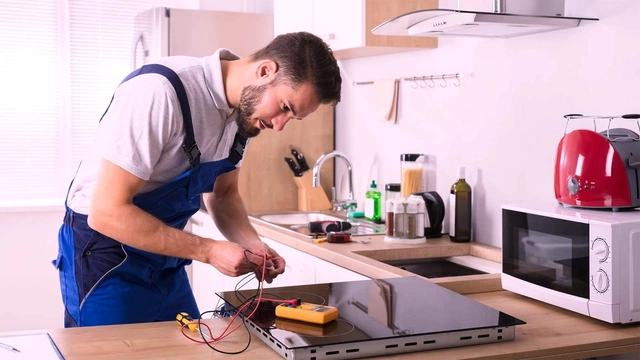Understanding the Lifespan of Home Appliances
When we buy home appliances, we expect them to last a long time. However, the reality is that these products have a limited lifespan. Some appliances may last for up to 20 years, while others might start showing signs of wear and tear after just a few years of use. In this section, we will discuss the average lifespan of common home appliances and how to determine if it's time to repair or replace them.
Factors Affecting Appliance Longevity
Several factors can influence the lifespan of your home appliances. The quality of the product, its usage, and maintenance are three crucial factors that determine how long an appliance will last. Additionally, external factors such as power surges, accidents, and environmental conditions can also impact the longevity of your appliances. By understanding these factors, you can make better decisions when it comes to repairing or replacing your home appliances.
Assessing the Cost of Repair vs. Replacement
One of the primary considerations when deciding whether to repair or replace a home appliance is the cost. Repairing an appliance can sometimes be more expensive than replacing it, especially if the appliance is old and requires frequent repairs. It's essential to compare the cost of repairing the appliance with the cost of purchasing a new one. If the repair cost is more than half the price of a new appliance, it might be more cost-effective to replace it.
Energy Efficiency and Environmental Impact
Another factor to consider when deciding between repairing and replacing a home appliance is its energy efficiency. Older appliances tend to consume more energy, leading to higher utility bills and a more significant environmental impact. Newer models are usually more energy-efficient, which can result in long-term savings on your energy bills. Additionally, replacing an old, energy-guzzling appliance can help reduce your carbon footprint and contribute to a greener environment.
Warranty and Support
When making the decision to repair or replace a home appliance, it's essential to consider the warranty and support offered by the manufacturer. If the appliance is still under warranty, it's generally better to have it repaired as the cost might be covered by the manufacturer. However, if the warranty has expired, and the manufacturer no longer offers support for the appliance, it might be time to consider a replacement.
Availability of Replacement Parts
As appliances age, it can become increasingly difficult to find replacement parts. If the parts needed for a repair are no longer available or are prohibitively expensive, it might be more practical to replace the appliance. In some cases, the cost of sourcing rare or discontinued parts can be higher than the cost of a new appliance.
Estimating the Remaining Life of the Appliance
When deciding whether to repair or replace an appliance, it's important to consider its age and how much longer it's expected to last. If an appliance is nearing the end of its expected lifespan, it might be more cost-effective to replace it rather than investing in a repair that may only extend its life by a short period. On the other hand, if an appliance is relatively new, a repair might be a more sensible option.
Personal Preferences and Lifestyle Changes
Ultimately, the decision to repair or replace a home appliance is a personal one that depends on your preferences and lifestyle. If you prefer the latest technology and are ready for an upgrade, replacing the appliance might be the best choice. However, if you're attached to a particular appliance or have a limited budget, repairing might be the better option. By carefully considering all the factors discussed in this article, you can make the best decision for your home and family.


